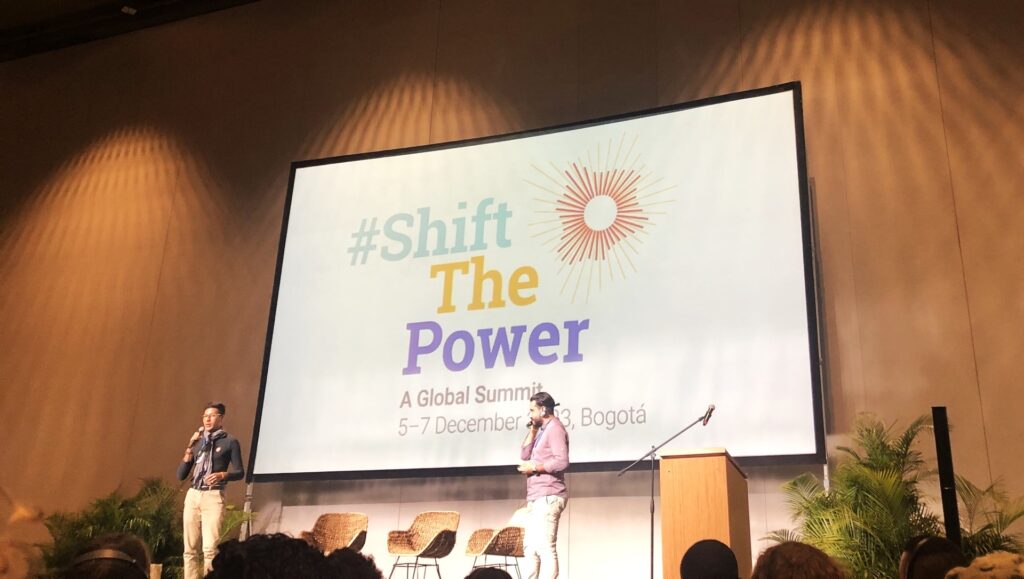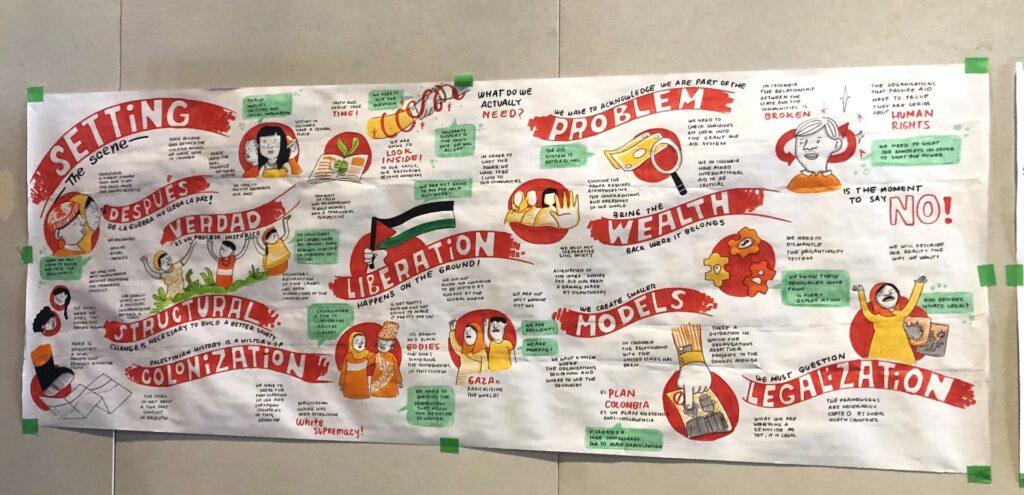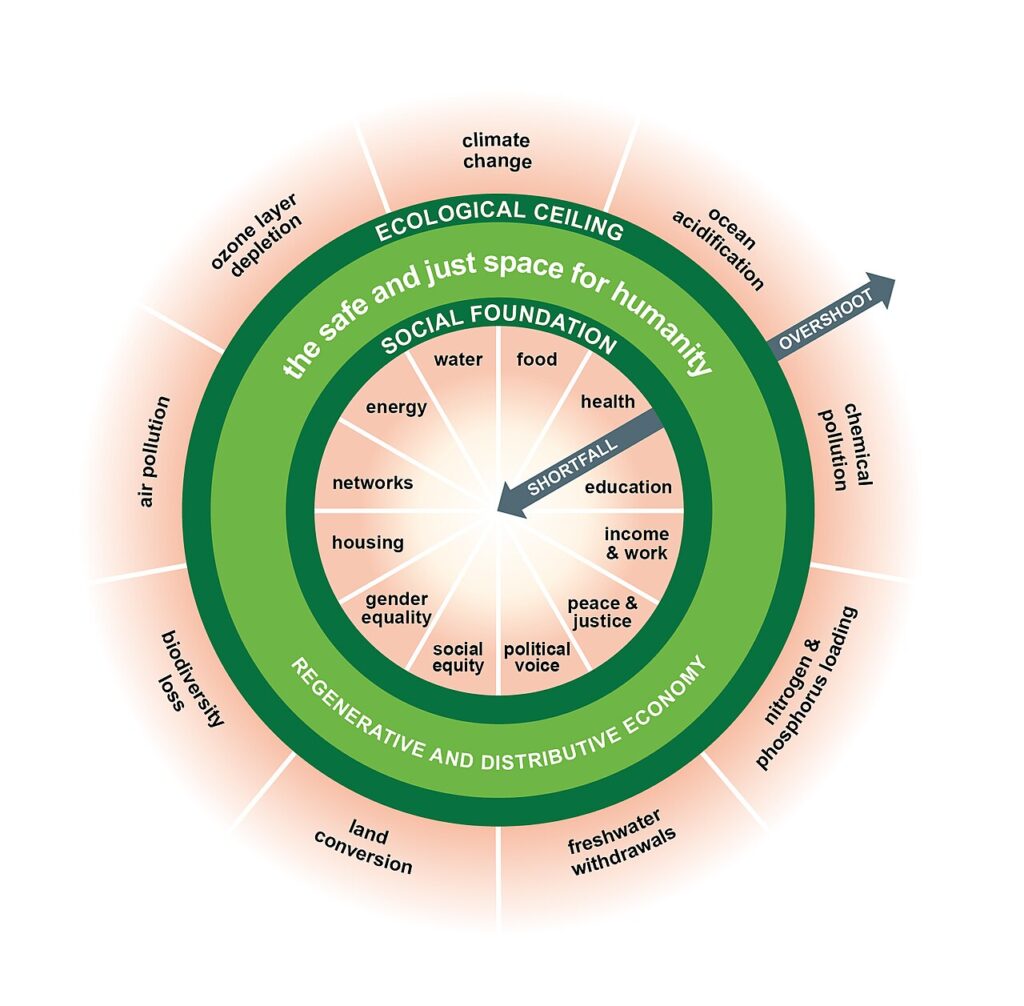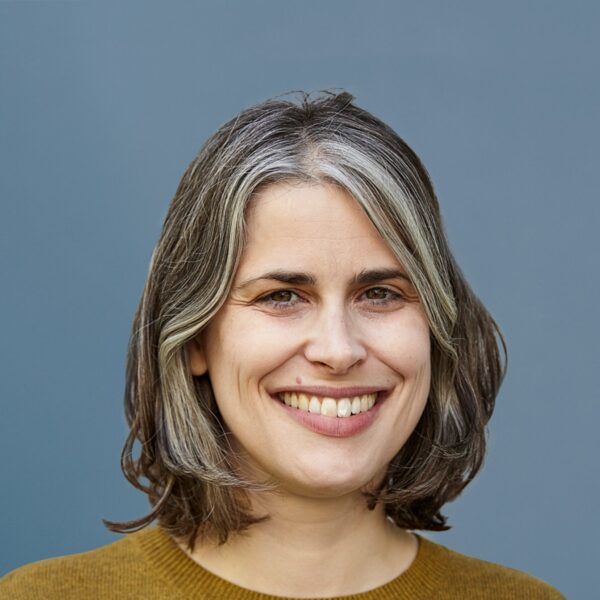At the end of last year, I had the chance to participate in the #Shift the Power Summit in Bogotá, organised by the Global Fund for Community Foundations and TerritoriA, which gave me, and the International Civil Society Centre further resolve in supporting ICSOs in their power shift journey. The Summit gathered over 700 participants from over 70 countries to discuss how to work together to truly shift power and overcome the blockages that prevent a truly systemic change of the system, moving away from top-heavy and top-down systems of international development and philanthropy.
While in recent years the debates around shifting power, localisation and decolonisation within the civil society sector have gained prominence, resulting in an increasing number of actors seeking to foster a paradigm shift, the challenges to dismantle and readdress power, roles and responsibilities remain significant.
The Summit was a pivotal event that saw activists, national and international organisations and funders, convene in agreement that the current development and philanthropy systems are not fit for purpose but require a radical restructuring of their architecture.

As Marie-Rose Romain Murphy of the Haiti Community Foundation, poignantly said in her address:
“Communities have been historically marginalised in the development process by governments and NGOs. Shifting power means recognising that local communities hold the solutions.”
During the conference, communities and practitioners who have been historically disenfranchised were front and centre. Throughout the discussions and sessions, we reflected on how as actors we can foster an enabling environment for change, avoiding window dressing and empty commitments.
In order for significant shifts to happen it is pivotal for organisations to re-examine their assumptions regarding where they stand in the sector. Developing self-awareness and defusing power dynamics within an organisation is helpful in ensuring that partnerships are genuine, built on trust, and free from exploitative practices. For international civil society organisations (ICSOs) changing the system entails not giving away power entirely, but rather engaging with it to progressively shift it to communities we aim to serve.
A key question that was discussed during the Summit was: Beside shifting power as a moral imperative, what does it mean for development and philanthropy actors to address the problem of power inequities?
Since 2018, the International Civil Society Centre’s Power Shift Labs have addressed the problem of power imbalances between Northern and Southern, but also between large and small, rich and resource-scarce entities of ICSOs. During the Labs, ICSO leaders explored the questions of how to overcome barriers and lead the necessary transformational power shifts in governance. Our goal is to prioritise the perspectives of the communities we serve by facilitating the exchange of lessons learned while supporting organisations in re-evaluating how they add value to a system that is infused with a colonial mindset.

The Summit highlighted that the challenging and dismantling structures that perpetuate power imbalances is paramount to define the legitimacy of ICSOs in the civil society ecosystem.
Here are some of the reflections from the Summit on how organisations can start addressing power imbalances:
Power Shift cannot happen without mindset change
At the Summit, there were several discussions around the idea that before shifting power we need to shift culture and mindsets, and that requires individual reflections. Most dimensions that contribute to unequal decision making can be interpreted through an intersectional lens. To fight such inequalities, organisations should commit to identifying and eradicating the negative power dimensions that allowed such decision-making structures to develop and foster. Power imbalances are recognised as being not only an issue between Global North and South, but also across Southern, patriarchal power dimensions. All individuals working in the sector ought to ask themselves; how do you use power responsibly once you have it? How can we use our positionality and power to influence the sector to do better?
Concrete change requires strong sponsorship
In many organisations, there is a public commitment to being less colonial at internal and structural level and more conscious of power imbalances. While at macro-level, there is widespread agreement on the need to change and on such intent, there is a lack of vision of how to achieve change in the short-term, resulting in lack of consistent progress. In fact, while at a personal level, decision-makers might want to be de-colonial, they often struggle to transfer such commitment to the policy and strategy level. Finding sponsors for change within the organisation is crucial to implement such theoretical commitments and move from policy to concrete action.
There is a wealth of power in language and communication
The use of empowering language is a key tool to establish genuine and more equitable partnerships with communities, moving away from bureaucracy and flawed impact measurement to shared values and empathy for each other’s needs. Reflecting and being intentional about language also requires avoiding the co-option of the language of liberation, that radical groups have used to address the need to overhaul the system. Furthermore, while most organisations agree that decision-making should be moved to the closest point of impact, efforts to prioritise such commitments should be communicated better, creating safe spaces for critical and thought-provoking discussions.
We look forward to exchanging with organisations that endeavour to embrace this transformative mission despite the challenges. One of our key avenues to build momentum is the Power Shift Lab, which serves as a dedicated platform for a comprehensive review and assessment of the intricate interplay between power dynamics, organisational intent, and governance reform. This year’s Power Shift Lab, taking place on 10-12 June 2024 in Senegal in collaboration with Tostan, will focus on the intersection of governance transformations and shrinking civic space, delving into how such transformations affect local civil society. Connecting with local initiatives, we will further assess how to develop governance frameworks that facilitate the empowerment of local decision-makers in strategy, with the aim to dismantle the top-down decision-making structures that still pervade the sector.
If you are interested in participating in the event, want to find out more or keep up to date with our Accelerating Inclusive Power Shift initiative, sign up for our newsletter or reach out to Myriam Ciza Gambini, directly at mcgambini@icscentre.org







